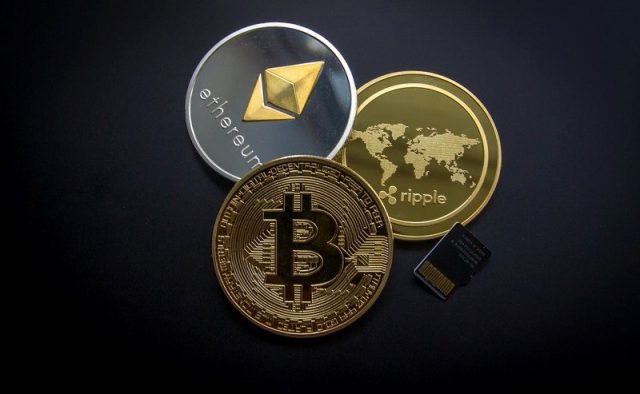
Ripple Scores Small Legal Battle, Prepares for Long-Term War

Whether you are new to the Ripple race or one of those smart investors that can boast they managed to buy Ripple before it was cool, you are certainly not going to be bored anytime soon. Ripple is one of the most popular cryptocurrencies but lately it seems to have been entangled in a long series of legal battles that could also potentially have repercussions on the cryptocurrency world beyond Ripple. Recently, Ripple scored a small win that has allowed the company some room to breathe. So, if you were on the fence about whether or not to buy Ripple, these latest developments might be the deal-breaker.
Ripple’s Ways Give Rise to Controversy
One of the less conventional cryptocurrencies, Ripple is doing things a bit differently. For starters, the team behind it is actively pushing for regulation, while its price fluctuation has sparked a heated discussion. As recently as late June 2018, the price of Ripple went below $0.50 – but instead of discouraging investors, this dip pushed many of them to buy Ripple as they estimated that the price would stabilize again. In contrast with Bitcoin, the poster boy of decentralized non-fiat currencies, Ripple seems to retain some centralization elements. It is essentially a payment network that uses its own token as a currency and has created its own distributed ledger in order to verify purchases through several nodes, reaching out to financial institutions and banks so that they can connect to its network.
This token is called XRP and this is where some centralization elements linger. If you are looking to buy Ripple, the first thing you will learn is that, unlike BTC, XRP tokens are not mined, but rather created by Ripple. Over 8 billion of the roughly 100 billion XRP tokens created so far are in the possession of Ripple, almost 40 billion are dispersed (which, however, includes some 20 billion XRP held by its creators), and more than 50 billion are still in escrow. This means that Ripple still holds at least 60 billion out of the 100 billion XRP tokens that have been created so far. And this has caused the Securities and Exchange Commission (SEC) to take a closer look at the issue of whether XRP is a security.
Ripple Targeted by Coffey Lawsuit – but Scores a Win
 This unconventional approach to how the XRP token is created is one of the main points of criticism for Ripple – and one of the points that gave rise to Ryan Coffey’s lawsuit. Coffey is an XRP investor who was not so happy with his decision to buy Ripple and submitted a class action lawsuit on May 3rd. His lawsuit initiated the Coffey v Ripple Labs Inc. case and its numerous sub-cases and decisions – on one of which the courts just ruled in favor of Ripple. Coffey’s main argument is that Ripple is a security and, as such, it should be registered with SEC and regulated properly. Securities are, in a nutshell, ownership shares. Coffey argues that XRP is essentially Ripple’s share, because XRP is created by Ripple itself and the largest chunk of the tokens are still held by Ripple Labs. He has also described the distribution of XRP tokens as a “never-ending coin offering”. While payment solutions like xRapid are celebrated as being at the core of Ripple’s success, Coffey alleges that most of its profits have come from the creation of XRP out of nothing.
This unconventional approach to how the XRP token is created is one of the main points of criticism for Ripple – and one of the points that gave rise to Ryan Coffey’s lawsuit. Coffey is an XRP investor who was not so happy with his decision to buy Ripple and submitted a class action lawsuit on May 3rd. His lawsuit initiated the Coffey v Ripple Labs Inc. case and its numerous sub-cases and decisions – on one of which the courts just ruled in favor of Ripple. Coffey’s main argument is that Ripple is a security and, as such, it should be registered with SEC and regulated properly. Securities are, in a nutshell, ownership shares. Coffey argues that XRP is essentially Ripple’s share, because XRP is created by Ripple itself and the largest chunk of the tokens are still held by Ripple Labs. He has also described the distribution of XRP tokens as a “never-ending coin offering”. While payment solutions like xRapid are celebrated as being at the core of Ripple’s success, Coffey alleges that most of its profits have come from the creation of XRP out of nothing.
Coffey himself only lost a little over $550, but a decision in his favor could have long-term implications for other investors holding or looking to buy Ripple. In the latest instalment in this legal saga, Ripple scored a win by having the US Northern District of California court dismiss Coffey’s remand application. This application urged the court to decide against placing the case under the jurisdiction of Federal courts and instead keep the case in the State’s lower courts. Coffey and his legal team presumably tried to keep the case in a lower court as a potentially unfavorable decision would not set a precedent that would preclude similar cases brought forward in lower courts elsewhere in the nation – which is exactly what a federal case would do. But Ripple is sort of testing its luck, as a federal court decision could in theory go either way.
Now Coffey’s side will invest all of its efforts into proving that XRP passes the H owey test, which is used to decide whether an instrument is a security. According to the test, an instrument that mandates a financial investment and gives investors a reasonable expectation of profit is a security – and now Ripple will have to prove that XRP does not fall under the definition’s scope.